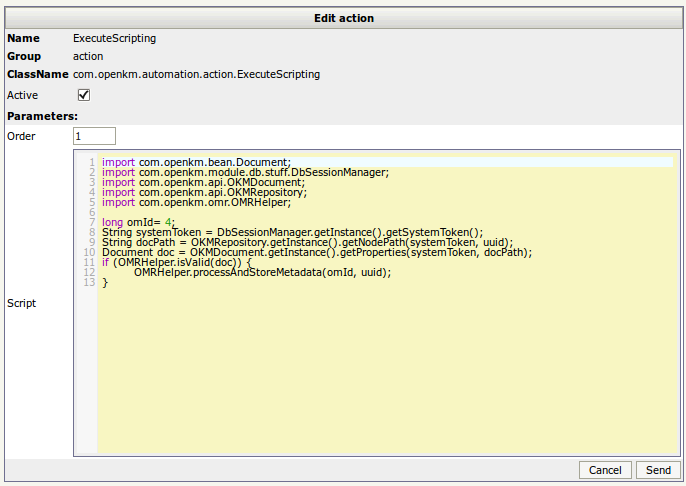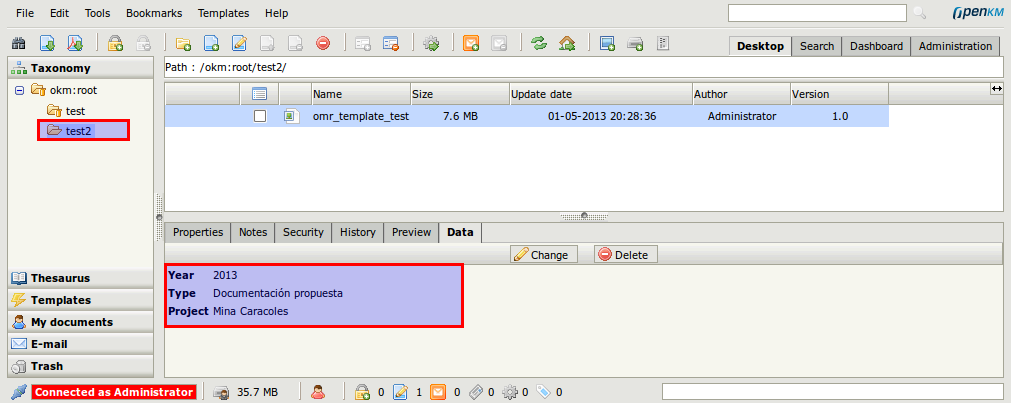Difference between revisions of "OMR scripting"
From OpenKM Documentation
| Line 15: | Line 15: | ||
Document doc = OKMDocument.getInstance().getProperties(systemToken, docPath); | Document doc = OKMDocument.getInstance().getProperties(systemToken, docPath); | ||
if (OMRHelper.isValid(doc)) { | if (OMRHelper.isValid(doc)) { | ||
| − | + | OMRHelper.processAndStoreMetadata(omId, uuid); | |
} | } | ||
</source> | </source> | ||
Revision as of 20:59, 1 May 2013
The script process an image with OMR engine from Automation scripting feature, each time new document is uploaded. With minimal changes can be used in conjuntion with crontab.
- omId value is the template id.
import com.openkm.bean.Document;
import com.openkm.module.db.stuff.DbSessionManager;
import com.openkm.api.OKMDocument;
import com.openkm.api.OKMRepository;
import com.openkm.omr.OMRHelper;
long omId= 4;
String systemToken = DbSessionManager.getInstance().getSystemToken();
String docPath = OKMRepository.getInstance().getNodePath(systemToken, uuid);
Document doc = OKMDocument.getInstance().getProperties(systemToken, docPath);
if (OMRHelper.isValid(doc)) {
OMRHelper.processAndStoreMetadata(omId, uuid);
}
Example
Create a automation task based on event document creation and post execution.
With one validation based on folder path and one scripting action.
The script value is:
Where omId value is template id;
Each time document is uploaded to folder path ( or subfolders ) the image is processed by OMR.




